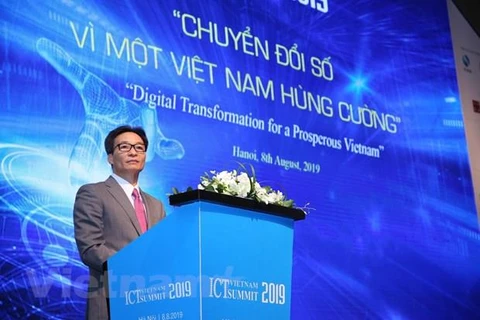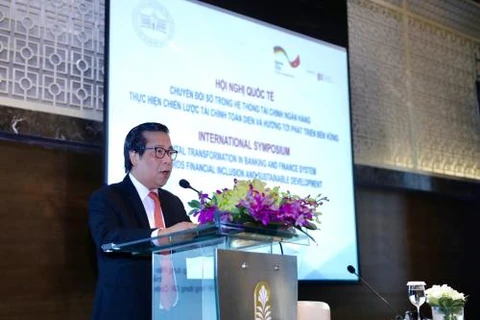Hanoi (VNS/VNA) - State-owned-enterprises (SoEs) are largely unprepared for the demands of the digital age despite pressing demand for change in the sector, a researcher has said.
Trinh Duc Chieu, deputy head of reform research and enterprise development under the Central Institute for Economic Management (CIEM), made the statement in a workshop to discuss how SoEs are getting ready to adopt digital technology in Hanoi on November 5.
The Government has earmarked SoEs to drive economic growth and many recent directives say they must embrace the technological revolution to restructure and enhance competitiveness.
A recent CIEM survey showed 35 percent of SoEs have just only started the digitalisation process. Smaller SoEs tend to have made modest progress with an average score of 1.84/5 based on CIEM's ranking criteria while larger SoEs tend to score higher at 3.07/5. SoEs with fewer shares held by the State tend to have made more progress than others.
Notably, private enterprises, who possess less computing power or the number of computers, tend to utilise them a lot more often than SoEs in most fields. The survey also showed most SoEs had a high level of enthusiasm and expectation regarding the digitalisation process and how it will help spur growth and business opportunities in the next five years, according to CIEM's survey.
Le Hai Dang, head of Vietnam Electricity (EVN) development strategy department, said EVN has implemented 39 projects since last year to speed up its digitalisation.
"To focus on innovation and research and development is an innate need of a company to better serve customers and improve operational efficiency," said Dang.
Daunting challenges
Speaking at the workshop, experts voiced concern over the digitalisation readiness showed among SoEs, saying it would be a long shot to expect them to lead the way in terms of innovation.
Chieu said there were still many shortcomings and limitations in Vietnam’s digitalisation strategy, such as a lack of clear objectives and dedicated funds for SoE's technological research and development. Despite SoE's high expectation to perform, they have not been placed among the country's innovation ecosystem and desperately need support to access new technologies, especially small-to-medium enterprises.
SoEs also have a hard time attracting and retain IT talents due to their much less lucrative compensation policies, which are often regulated by State's labour code, compared to the private sector.
"It's difficult for SoEs to compete with the private sector to keep IT professionals. As it stands, we are losing them to private companies," Dang from EVN said.
A representative from Petro Vietnam said another reason for slow digitalisation among SoEs was their risk-averse nature. Innovation often requires trial and error before it can produce results and failure may bring legal consequences for SoEs' leaders as the State's priority is to preserve its capital./.
VNA























